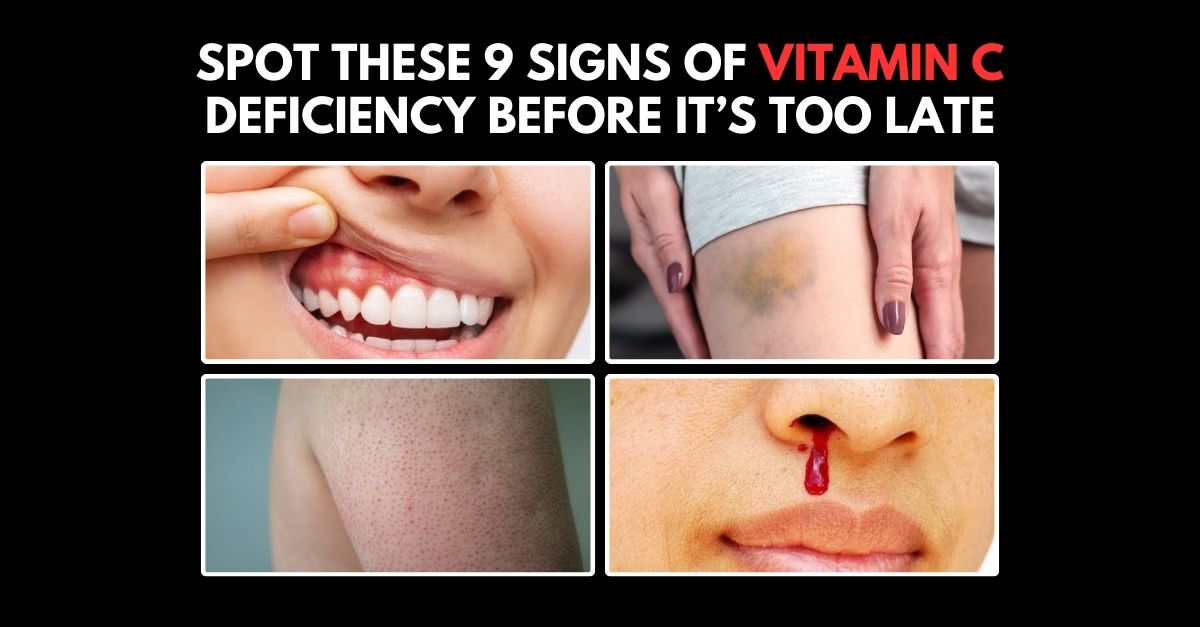Vitamin C (ascorbic acid) is a crucial nutrient that supports immune function, promotes healing, and helps prevent a range of health issues. A long-term review published in Seminars in Preventive and Alternative Medicine found over 100 benefits linked to this powerful vitamin, from cardiovascular support to immune defense. Researchers, including Dr. Mark Moyad from the University of Michigan, conclude that maintaining high levels of vitamin C can positively impact overall health and longevity.
Since vitamin C isn’t stored in the body, deficiencies can develop over time, leading to several concerning symptoms. Here are the early signs that may indicate vitamin C deficiency:
- Frequent Colds and Flu
Vitamin C boosts the production of white blood cells, strengthening the body’s defenses against infections. If you’re getting sick frequently, you may need more of this immune-supporting vitamin. - Easy Bruising
Fragile capillaries from low vitamin C can lead to increased bruising. This may be a warning that your capillaries lack the necessary strength. - Nosebleeds
Low vitamin C affects the integrity of capillaries, especially in sensitive areas like the nose. Deficiency may lead to recurring nosebleeds, as these blood vessels are more vulnerable without sufficient vitamin C. - Swollen and Painful Joints
Vitamin C deficiency can raise the risk of arthritis due to its impact on inflammation, which may result in joint pain and swelling. - Rough, Red Skin
Vitamin C helps produce collagen, which keeps skin smooth and resilient. Low levels may cause rough, red skin patches or conditions like keratosis pilaris. - Slow-Healing Wounds
Vitamin C’s role in tissue repair is critical, so a deficiency may slow wound healing. This could be a red flag that your body needs more vitamin C. - Fatigue and Mood Changes
Low vitamin C levels have been linked to fatigue, mood swings, and even anxiety. A deficiency may leave you feeling persistently drained and irritable. - Swollen, Bleeding Gums
Vitamin C supports oral health by strengthening the gum tissue barrier against bacteria. Low levels can lead to swollen, bleeding gums and other dental issues. - Dry Hair and Split Ends
When vitamin C is low, the body redirects it to vital organs first. This often leaves hair dry, prone to split ends, and may even slow growth.
Boost Your Vitamin C Naturally
Increasing your vitamin C intake can help prevent these symptoms and boost overall wellness. Rich sources of vitamin C include citrus fruits, strawberries, tomatoes, green peppers, broccoli, and leafy greens. Registered dietitian Dee Sandquist recommends aiming for at least nine servings of fruits and vegetables daily to ensure a healthy vitamin C intake and benefit from other essential nutrients.
Related posts:
22 Warning Signs Your Body Needs Magnesium – And How to Fix It Fast!
The Truth About Vitamin B12 Deficiency in Just 10 Minutes
9 Warning Signs of Low Potassium Levels You Should Never Ignore




